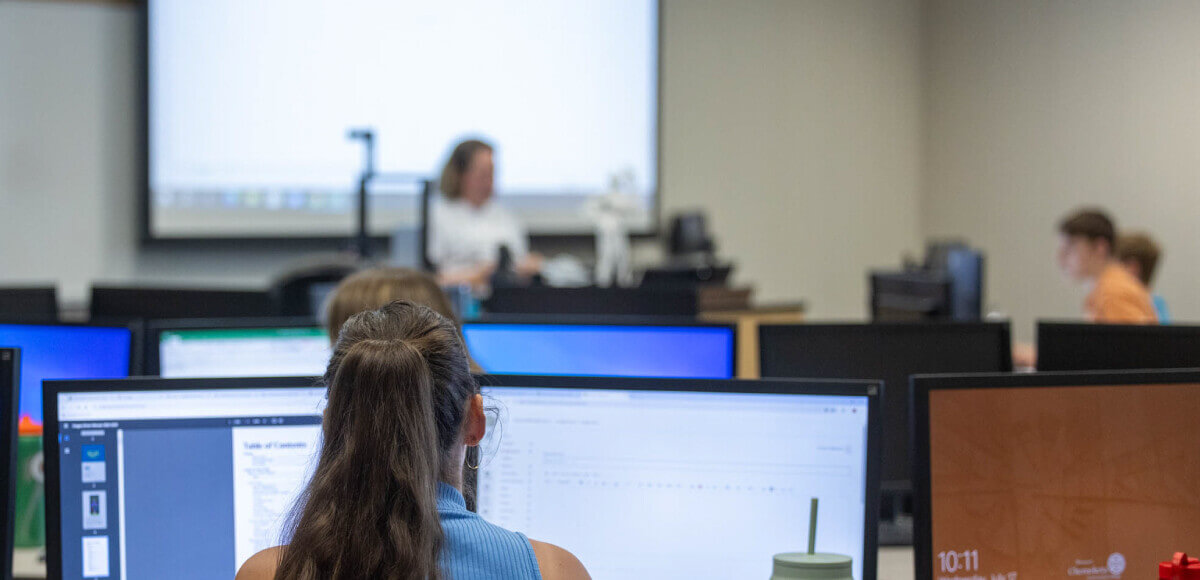Chemeketa Community College’s Workforce Ready Grant: A Bold Step Toward Bridging Workforce Gaps

Chemeketa Community College has launched an ambitious initiative to address critical workforce shortages in healthcare, manufacturing, and technology across Oregon. With support from the Workforce Ready Grant, the programs aim to create accessible pathways for individuals to enter and thrive in these industries, particularly focusing on underserved communities.
The Workforce Ready Grant supports innovative training programs designed to equip individuals with in-demand skills. “The grants will fund the creation of new, accessible pathways to healthcare careers, such as the Medical Assistant (MA) program and the Licensed Practical Nurse to Registered Nurse (LPN-to-RN) program,” Marie Hulett shared. For manufacturing and technology, the grants focus on early exposure, certifications, and the ability to train while maintaining employment.
These efforts extend beyond education. “The grants will support job placement and career advancement for program participants through industry connections and placements,” she emphasized. This holistic approach ensures that newly trained workers are not only skilled but also positioned for success in the workforce.
Chemeketa’s programs address key obstacles that underserved communities face, such as financial, language, and geographical barriers. “The cost of education and training can be prohibitive for many individuals,” emphasizing that the programs offer stipends, tuition assistance, and scholarships to ease financial burdens.
Language and geographical barriers are also tackled through bilingual instruction and online learning options. “For individuals in rural areas, Chemeketa is bringing services to the students by offering programs in rural locations and online,” Hulett added. Wraparound support services like childcare and transportation assistance further enhance accessibility.
The LPN-to-RN hybrid model stands out as a transformative approach to nursing education. Combining online components with flexible scheduling, the program allows working LPNs to pursue RN licensure without sacrificing their existing responsibilities. “This model not only accelerates career advancement but also creates a supportive learning environment through cohort-based structures and mentorship,” other Chemeketa team members explained.
Beyond education, the program aims to enhance healthcare delivery. “By increasing the number and diversity of qualified RNs, the program can improve patient outcomes and address the critical shortage of RNs in the region,” they explained.
Chemeketa has also focused on engaging underrepresented groups through strategies such as community partnerships, targeted marketing, and bilingual informational sessions. For instance, the tuition-free Computer Information Systems Certificate program leverages local workforce development agencies and high school networks to attract diverse participants.
Cultural inclusivity plays a central role in initiatives like the Level Up program for Latinx youth. “Partnering with organizations like Unidos, which already have trusted relationships with families in rural areas, allows us to improve our services and create support systems for student success,” Chemeketa team members highlighted.
The Mobile Learning Lab exemplifies Chemeketa’s commitment to accessibility. Equipped with VR simulators for skills like welding, the lab delivers hands-on manufacturing training to rural and underserved areas. This approach ensures that students receive real-world experience, regardless of their location.
Additionally, Chemeketa’s manufacturing training program for incarcerated individuals provides a pathway to economic independence. “Returning individuals are less likely to face future incarceration if they have jobs. Training in manufacturing offers economic stability, which significantly reduces recidivism,” they shared.
For the Salem region, the economic impact is clear. “Employers get the employees they desperately need to continue to grow, and community members gain access to training that leads to well-paying jobs,” Hulett concluded.






